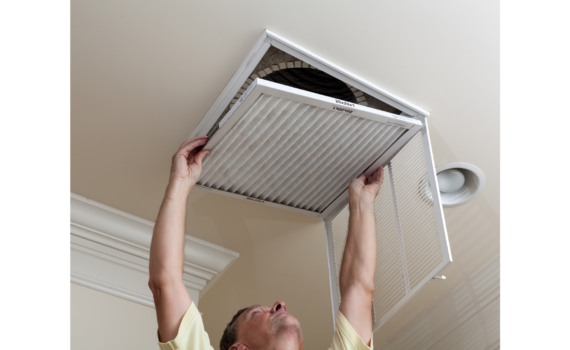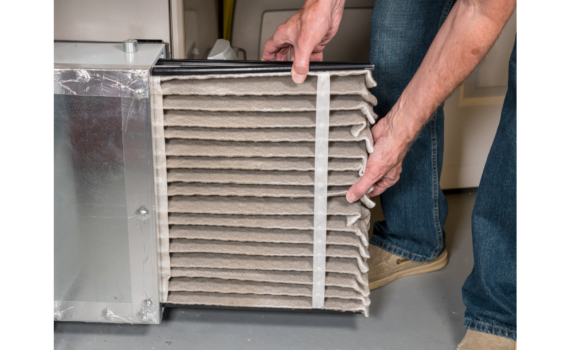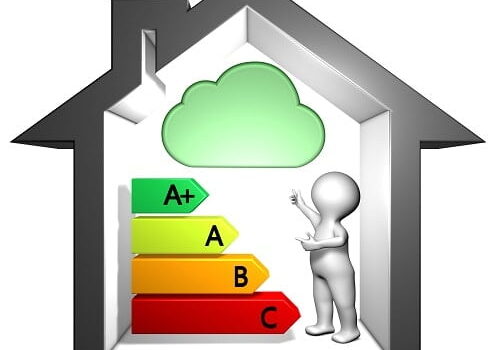
How to Deal with and Prevent a Wet Air Filter
If you notice your air filter is wet, this is an indication that there is an issue with your HVAC system that should be addressed as soon as possible. A wet air filter is not doing its job properly! Wet air filters result in less airflow and higher energy bills. They can also ultimately cause a blown motor or frozen evaporator. Lastly, they can cause mold issues and poor air quality, which can cause serious health issues.
Why Is My AC Filter Wet?
If you’ve asked yourself, “Why is my AC filter wet?” you’re not alone. A wet AC filter is one of the first visible symptoms of moisture issues within your HVAC system. It can be a sign of internal condensation leaks, improper drainage, or even an incorrectly installed system. A moist filter not only fails to protect your air quality but may indicate a deeper malfunction that can lead to expensive repairs if ignored.
What Happens If AC Air Filter Is Wet?
A wet AC air filter does more than just reduce airflow—it puts your entire system at risk. When your filter is damp or soaked, it loses its ability to trap airborne particles, allowing allergens and debris to circulate through your home. This can aggravate respiratory issues and promote mold growth within your ductwork. Over time, it can also cause your HVAC components, especially the motor and blower, to overwork and potentially fail.
Potential Causes of Wet Air Filters
Your air filters could be wet for a number of reasons. One of the most common reasons air filters become moist is due to a condensate pan or condensate drain line that is clogged. The water could also be dripping off of the evaporator coils. This is less typical, but happens occasionally.
If your HVAC unit is new, it’s also possible your unit or filter wasn’t installed properly. You could have a faulty compressor leaking water on to the air filter. A improperly installed filter is an easy fix, but if your whole unit is improperly installed, it’s not quite as easy.
Another possible cause of wet air filters could be a malfunctioning or undersized HVAC system. If the system isn’t appropriately matched to the size of your home, it may struggle to regulate humidity, leading to excessive moisture buildup. Additionally, a malfunctioning dehumidifier within your HVAC unit can result in too much moisture in the air, which can collect on the air filter. A refrigerant leak could also cause abnormal cooling processes, leading to condensation forming in unexpected areas, such as the filter. Proper system sizing and regular maintenance can help prevent these issues.
In addition, the condition of your ductwork can also play a role in causing wet air filters. If your ducts have leaks or poor insulation, warm, humid air can enter the system and mix with the cooler air, leading to condensation. This excess moisture can eventually make its way to the air filter. This issue is especially common in homes with older ductwork or ducts that run through unconditioned spaces like attics or basements. Ensuring your ducts are properly sealed and insulated can help minimize moisture buildup and keep your air filters dry. Regular maintenance and inspections can help address any duct-related concerns before they lead to larger problems.
What to Do When You Discover a Wet Air Filter
When you discover a wet air filter, remove the wet filter and dry the area up. Check the drain for debris or algae and make sure the condensate pan isn’t corroded or cracked. Turn your ac off right away, so you don’t spread moisture throughout your home. Then, put in a new fresh air filter. Make sure to call a trusted HVAC professional who can help you address the issue at hand.
In addition to the immediate steps, it’s important to monitor your HVAC system closely over the next few days to ensure the problem doesn’t persist. Here are key points to consider:
- Check the new filter regularly: If the new filter gets wet again, it could indicate a more serious issue that requires immediate attention.
- Look for signs of serious problems: Potential issues may include a refrigerant leak or blocked ductwork, both of which can compromise system efficiency and lead to costly repairs.
- Be aware of mold growth: Ignoring the problem could lead to mold growth, which can damage the system and pose serious health risks for your household, particularly for those with respiratory issues.
- Listen for unusual sounds: Pay attention to any strange noises coming from the HVAC system, as these can signal mechanical problems that need addressing.
- Monitor airflow: Reduced airflow can be a sign of underlying issues that affect performance, such as dirty filters or duct obstructions.
- Watch for inconsistent cooling: Inconsistent cooling may indicate that the system needs a more thorough inspection to identify any potential malfunctions or inefficiencies.
Can I Keep Running My AC with a Wet Filter?
You should not continue running your AC with a wet filter under any circumstances. Doing so will not only restrict airflow but also force your system to work harder, leading to increased energy consumption and potential damage. A wet AC filter loses its ability to trap dust, pollen, and airborne particles, allowing contaminants to circulate freely throughout your home. This can worsen indoor air quality and aggravate allergies or respiratory issues.
Additionally, water dripping on the AC filter—often caused by frozen evaporator coils or a clogged condensate line—can damage electrical components, short out the blower motor, or deteriorate insulation inside the unit. Continued operation with a wet filter can also promote mold growth within the system, leading to unpleasant odors and long-term health risks.
To avoid these complications, turn off your HVAC system immediately, replace the filter with a dry one, and consult an HVAC professional to identify and fix the underlying problem. Taking prompt action protects both your system’s performance and your family’s health.
Preventing Wet Air Filters
There are several steps you can take to prevent your air filters from becoming wet. Changing your air filters regularly helps prevent this issue by minimizing the amount of debris that enter the drain lines and pans that clog them. You can also pour vinegar down your drain line to clean it out and kill any mold or mildew.
You should also schedule regular maintenance on your HVAC system. A technician can identify any cracks or blockages that are developing before they become a problem.
Quick Action Steps: What to Do if You Find a Wet AC Filter
- Turn off your AC system immediately to prevent moisture from circulating through your ductwork.
Remove and discard the wet air filter—do not attempt to reuse it, as it may be contaminated with mold or debris. - Inspect for water dripping on the AC filter, particularly from the evaporator coil or a clogged drain pan.
- Install a clean, dry filter that fits properly to restore normal airflow.
- Schedule an inspection with a licensed HVAC technician to identify the root cause and avoid recurring issues.
Additionally, check your home’s humidity levels and make sure your condensate line is free of blockages. - If you continue to notice signs of moisture or reduced airflow, it could point to a larger system imbalance, such as a refrigerant leak, frozen coils, or oversized equipment.
- Acting quickly can prevent long-term water damage, improve indoor air quality, and ensure your AC system runs efficiently.
Additional Tips for Maintaining Your HVAC System
- Monitor Indoor Humidity Levels:
High humidity can contribute to moisture buildup. Use a dehumidifier if necessary to keep indoor humidity levels between 30-50%. - Ensure Proper Ventilation:
Good ventilation allows moisture to escape. Make sure vents and air returns are not blocked by furniture or other obstructions. - Install a Condensate Pump:
If you have frequent drainage issues, consider installing a condensate pump to help remove excess moisture from the system. - Inspect Ductwork Regularly:
Look for signs of leaks or damage in your ductwork. Sealing ducts can improve efficiency and prevent moisture issues. - Keep the Area Around the HVAC Unit Clean:
Ensure that the area around your HVAC unit is free from debris and dirt. This will help improve airflow and prevent clogs. - Educate Yourself on Signs of Trouble:
Familiarize yourself with signs of HVAC trouble, such as unusual noises, reduced airflow, or inconsistent cooling, so you can address issues promptly.
Trust Natal AC for Your HVAC Maintenance Needs
At Natal AC, we are committed to ensuring your HVAC system operates efficiently and effectively. Our team of experienced technicians is ready to help you maintain your system and prevent issues like wet air filters from arising. Regular maintenance not only extends the life of your HVAC system but also improves your home’s air quality and energy efficiency. Don’t wait until a small issue becomes a big problem; schedule your HVAC maintenance today!
Some key takeaways:
Schedule routine professional maintenance
Change your filters monthly and replace if they look dirty
Make sure your HVAC system is installed by a trusted professional
If you have a wet air filter, contact us as soon as possible so we can help you resolve your issue. Contact us at (954) 788-0099 for a free consultation










